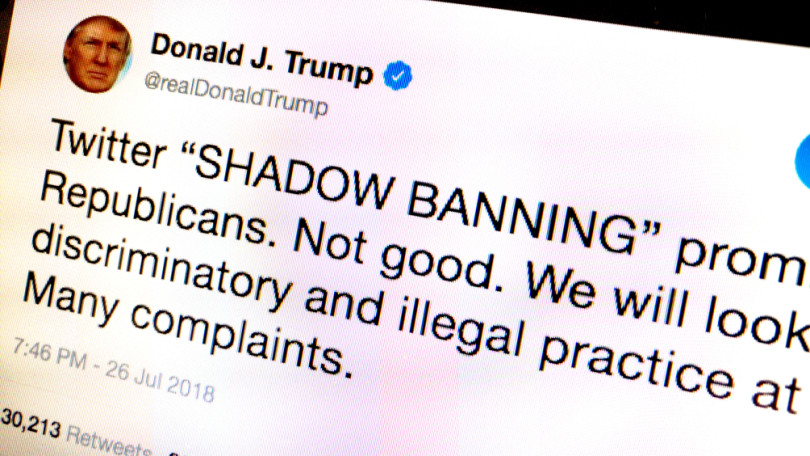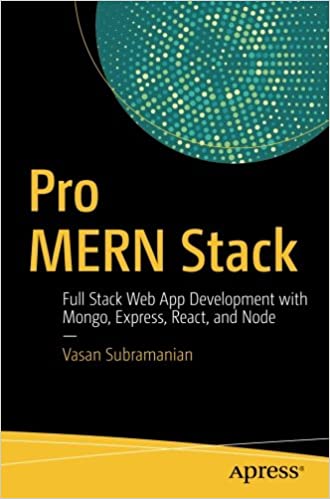; Date: Thu Jul 26 2018
Tags: Facebook »»»» Twitter »»»» Google »»»» Social Media Warfare »»»» Social Network Management »»»»
Shadow Banning appears to be rankling Conservatives (Republicans) who are crying foul. The social media networks are supposedly shadow banning conservatives, making it harder for folks to find conservative points of view. Supposedly on Twitter prominent Republicans do not show up in search suggestions -- the dropdown appearing while you type a search request -- while equally prominent Democrats do show up. This is according to the Republicans who are raising the stink. Twitter has responded saying it was a bug, that they've now fixed. But, what is Shadow Banning, and how do we determine if Shadow Banning is happening?

The claimed impact of Shadow Banning is that by making it harder for folks to be found on a social network, their potential impact is lessened. A person might be posting and posting and posting, but not getting any response and unclear why that might be.
In fact this is close to an ancient technique for moderating online forums. Some forum software allows administrators to prevent a given users postings from being seen by anyone else. Some networks allow the users to block seeing any posting by a given user.
The feature can serve a positive purpose - a spammer or a hate speecher can continue posting their stuff, but since nobody see's it there is no effect on anyone else. An individual might make that assessment on their own, they might say "I don't want to see so-and-so's postings" and either unfollow or completely block that person.
As you see below there are competing issues:
- Misuse of the platforms - whether it is spammy bots, or fake news organizations, suspicious information is being posted so the platforms can be used as part of larger scale manipulations of the truth
- Abuse between members - hate speech, postings targeting specific people or racial groups, and so on, are common both online and offline
- The desirability of open and fair communication - none of us want limitations on the freedom of speech
- The desirability of reasonable conversation - what is society to do with folks who flout social norms or otherwise tromp on others?
The stink being raised is about whether moderation tools are being used inappropriately. The social media networks do need to moderate conversations on their platform. But are moderation tools applied unfairly? Or inappropraitely?
A flip-side-problem occurs when someone who's abusing the system then cries foul to say s/he's being unfairly targeted, that his/her right to freedom of speech is being violated, etc. One should at such a time look at that person - are they posting bogus falsehoods - are they posting racial attacks or other attacks - are they being spammy? If any of those are true, what ground do they stand on for claiming to be unfairly silenced?
Up above we have a tweet from Pres. Trump decrying shadow banning. The problem here is that Trump's posts on Twitter are generally completely bogus (making bogus claims) or attacking folks unfairly or egging on warmongers etc. Isn't Pres. Trump violating Twitter's policies? For some reason his account has not been banned despite his actions, and that may be due to fear from the backlash from Trump and/or his supporters.
Official Republican/Conservative Concern
This is Republican Senator Ted Cruz questioning Facebook, Google, and Twitter, on the subject
Notice that Sen. Cruz starts by asking bluntly "Do you consider your companies to be a neutral public fora?" They each respond with yes and then explain that each company has moderation policies in place. The Youtube/Google response is representative - Our goal is to design products for everyone and that it is subject to our policies and the limitations they impose on the types of content that people may share on our products.
That is ... "Yes.." the platforms are open and neutral "But" there are limitations.
The Twitter representative received the most attention. Some Twitter engineers had said in public that the company practices shadow banning, such that accounts that are shadow banned can post all they like but nobody will find their posts.
The Twitter representative said that Twitter does not Shadow Ban but then went on to describe some moderation techniques. He tried to connect those techniques to the efforts to constrain fake news such as the Russian Spambot phenemona.
The conditions described by the Twitter representative include:
- spammy (engaging in malicious automation)
- targeted abuse
- consistently violating terms of service but have not crossed the line into being suspended
Results are described as
- "hide" a.k.a. make it harder for them to be found
- "downranked" - not explained but in the context it clearly means the algorithm for presenting search results would place downranked content lower in the results
Even for an account that is hidden or downranked, followers of that account will always be able to see postings from that account.
Twitter's response:
blog.twitter.com official topics product 2018 Serving_Healthy_Conversation.html
Today, we use policies, human review processes, and machine learning to help us determine how Tweets are organized and presented in communal places like conversations and search. Now, we’re tackling issues of behaviors that distort and detract from the public conversation in those areas by integrating new behavioral signals into how Tweets are presented. By using new tools to address this conduct from a behavioral perspective, we’re able to improve the health of the conversation, and everyone’s experience on Twitter, without waiting for people who use Twitter to report potential issues to us.
There are many new signals we’re taking in, most of which are not visible externally. Just a few examples include if an account has not confirmed their email address, if the same person signs up for multiple accounts simultaneously, accounts that repeatedly Tweet and mention accounts that don’t follow them, or behavior that might indicate a coordinated attack. We’re also looking at how accounts are connected to those that violate our rules and how they interact with each other.
Definition of Shadow Banning
According to a
Vice News report on the issue:
The Republican Party chair Ronna McDaniel, several conservative Republican congressmen, and Donald Trump Jr.’s spokesman no longer appear in the auto-populated drop-down search box on Twitter, VICE News has learned. It’s a shift that diminishes their reach on the platform — and it's the same one being deployed against prominent racists to limit their visibility. The profiles continue to appear when conducting a full search, but not in the more convenient and visible drop-down bar. (The accounts appear to also populate if you already follow the person.)
Vice News went on to say that Democratic Party folks are not being "shadow banned" in the same way.
We can take from this a definition for Shadow Banning - purposely manipulating the social network UI to make it harder to find a given person, and doing so based on political view.
On
Wikipedia we see this definition:
Shadow banning (also called stealth banning, ghost banning or comment ghosting) is the act of blocking a user or their content from an online community such that it will not be readily apparent to the user that they have been banned. By making a user's contributions invisible or less prominent to other members of the service, a hope may be that in the absence of reactions to their comments, the problematic or otherwise out of favour user will become bored or frustrated and leave the site.
Examples of Shadow Banning
Gizmodo reported in July 2018, including some screen shots
CNET reports on more congressional testimony, where Tech Giants claim again they are not shadow banning











